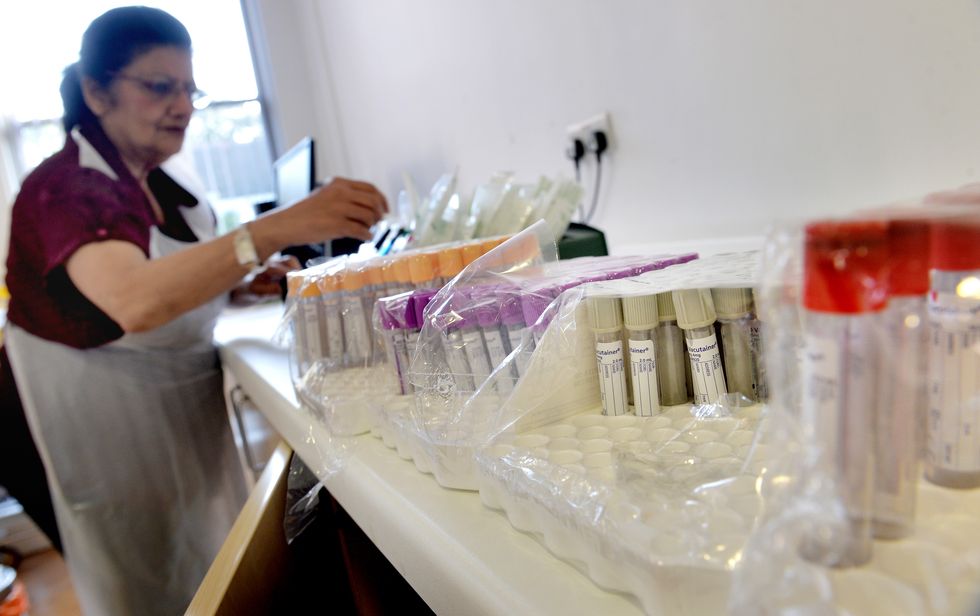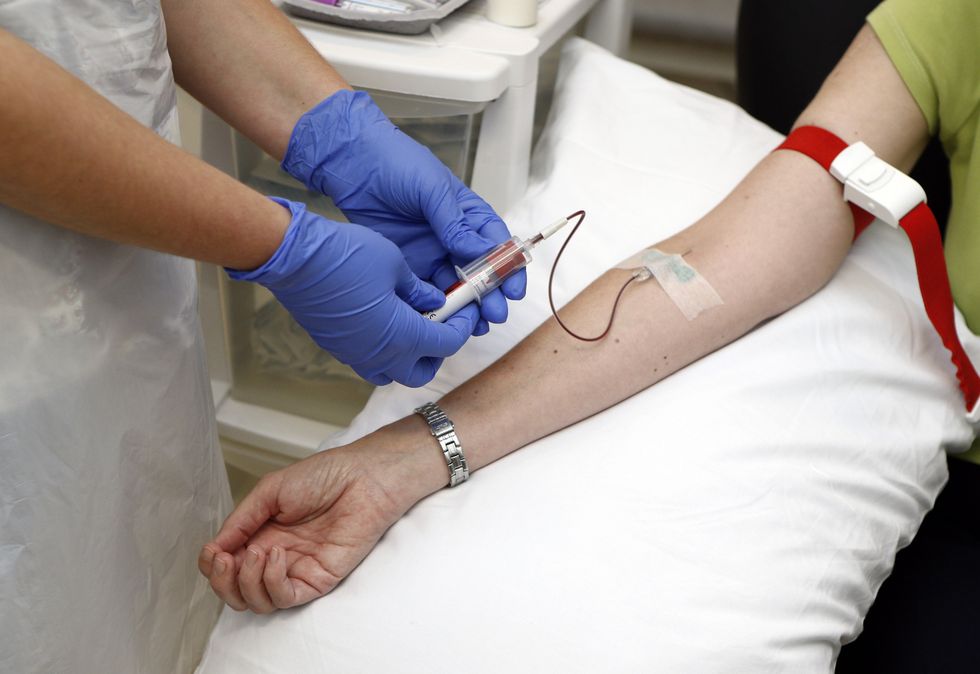Blood test for 50 types of cancer could speed up diagnosis in huge breakthrough, study suggests

A blood test for cancer could help speed up diagnosis and reduce a backlog of patients for treatment
|PA

An NHS trial has found the potential to spot cancer in people with symptoms
Don't Miss
Most Read
Latest
A blood test for cancer could help speed up diagnosis and reduce a backlog of patients for treatment, new data suggests.
An NHS trial found the Galleri blood test correctly revealed two out of every three cancers in people who had visited their GP with suspected symptoms.
Among more than 5,000 people - where the cancer was correctly found - the test was able to pinpoint where the primary cancer was in 85 per cent of cases.
Developed by US company Grail, the test detects tiny fragments of tumour DNA in the bloodstream and alerts doctors as to whether a cancer signal has been detected, and even predicts where in the body that signal may have originated.

Where the cancer was correctly found, the test was able to pinpoint where the primary cancer was in 85 per cent of cases
|PA
Experts have welcomed the findings, which are due to be presented at a global cancer conference on Saturday, but said more research would be needed before the test could be rolled out.
The Symplify study, led by the University of Oxford, involved 5,461 people in England and Wales and aimed to spot more than 50 types of cancer.
NHS England has hailed the test a potential "gamechanger" with medical professionals hoping the test will save lives by detecting cancer early enough for surgery and treatment to be more effective.
The participants were aged on average 62, two thirds were female, and just under half were current or former smokers.
The test detected a cancer signal in 323 people, with 244 diagnosed with cancer.
However, 2.5 per cent of those testing negative were also found to have cancer, according to the results to be published in Lancet Oncology.
Mark Middleton, a professor of experimental cancer medicine at Oxford, who led the trial, said the test had “potential for identifying people going to see their GP who are currently not referred urgently to investigate cancer … who do need testing”.
He said: “The first use case above has the potential to diagnose cancers earlier; the second and third have the potential to help achieve cancer targets (and therefore reduce waiting for patients) by reducing the overall number of tests needed to diagnose cancers.”

NHS England has hailed the test a potential 'gamechanger' with medical professionals hoping the test will save lives
|PA
Lawrence Young, professor of molecular oncology at Warwick Medical School, University of Warwick, said: "This is an important study that shows we are edging towards an era when blood testing for cancer, alongside other tests of symptomatic patients, could really impact early diagnosis and significantly improve clinical outcome."
But warned: "The current overall sensitivity of this test remains an issue particularly for certain types of cancer other than those of the upper gastrointestinal tract.
"The real challenge is to diagnose those cancers that are difficult to detect (e.g. lung, pancreas) and use a positive blood test to instigate other investigations such as imaging.
"To really trust that a negative result on blood testing means no cancer will require more studies."










